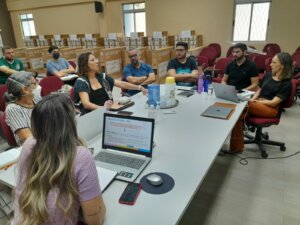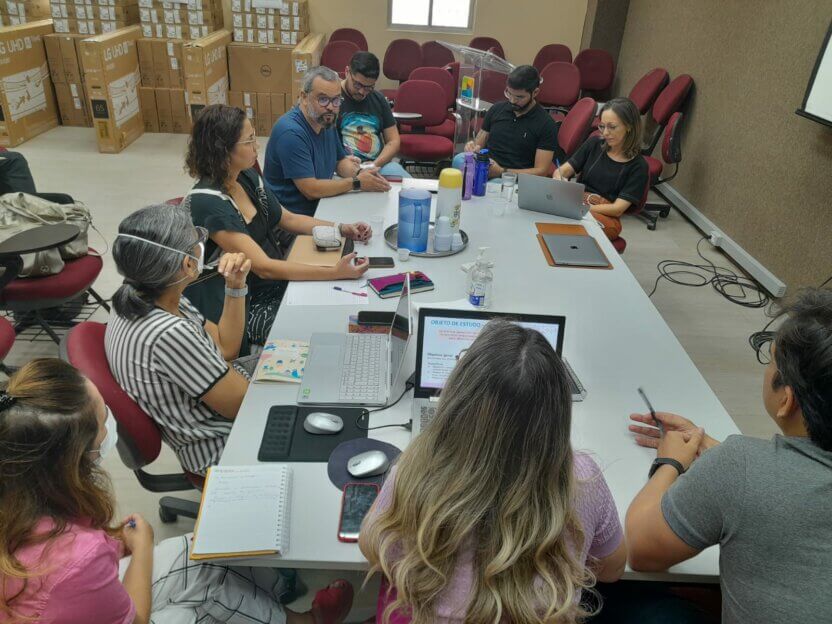By Bruno Cássio – LAIS/UFRN Communication Department
The working group coordinated by researchers from the Laboratory for Technological Innovation in Health at the Federal University of Rio Grande do Norte (LAIS/UFRN) met on Tuesday morning (04) to discuss the impacts of human training in health on improving community care. The experts want to measure how the offer of self-instructional courses for professionals in the Mais Médicos Program, via the SUS Virtual Learning Environment (AVASUS), contributed to the quality of services provided to those who are served in the Unified Health System.
The coordinator of the Program for Continuing Education in Family Health (PEPSUS/UFRN), José Adailton da Silva, talked about this work: “this group of researchers from LAIS/UFRN has been working for a long time and has the goal of building a schedule to analyze some issues inherent to this medical training”. The vice-coordinator of PEPSUS/UFRN, Rosires Barros, added: “the intention is to know how this initiative will impact the new professionals who are in residency and internship activities in the hospital network”.

Laianny Maia, a doctoral student in the Family Health course that integrates the Northeast Network in Family Health (RENASF) in the UFRN core, is one of the researchers that should produce publications by the end of this year. According to her, this is an important environment for the discussion of scientific production: “here I can delimit more the object of my study and from here will come future products that I will originate from my research”.
According to LAIS/UFRN researcher, Thaisa Lima, the Laboratory has been getting stronger in the last two years by analyzing data that connect the qualification of health professionals with the service provided to the public. “We have a lot of data regarding human training in health in Primary Health Care and this will generate articles in this line of public policy analysis, health impact data analysis, and public policy induction,” she explained.
The executive director of LAIS/UFRN, Ricardo Valentim, hopes that the articles produced by this work group will be published in journals with high scientific impact. This way, it will be possible to contribute to the improvement of work processes in SUS.





